Filter by

Letters, Power Lines, and Other Dangerous Things: The Politics of Infrastruct…
An examination of how post-9/11 security concerns have transformed the public view and governance of infrastructure. After September 11, 2001, infrastructures—the mundane systems that undergird much of modern life—were suddenly considered “soft targets” that required immediate security enhancements. Infrastructure protection quickly became the multibillion dollar core of a new and ex…
- Edition
- -
- ISBN/ISSN
- 9780262357777
- Collation
- -
- Series Title
- -
- Call Number
- 320.6

Biological and Social Issues in Biotechnology Sharing
First published in 1998, this was the first book to present a comprehensive summary of both the global as well as institutional issues which are involved in biotechnology sharing. It covers the controversial subject of intellectual property rights (IPR) and the patenting of new discoveries in genetic knowledge in both agriculture and the human genome. One controversial issue is the creation of …
- Edition
- 1
- ISBN/ISSN
- -
- Collation
- p.176
- Series Title
- -
- Call Number
- -
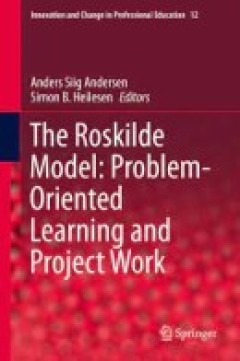
The Roskilde Model: Problem-Oriented Learning and Project Work
This book describes the pedagogical foundations of the Roskilde Model of education and educational design. It presents knowledge about how principles of problem-oriented, interdisciplinary and participant-directed project work may serve as a basis for planning and applying educational activities at institutions of higher learning. It discusses the dilemmas, problems, and diverging views that ha…
- Edition
- 2
- ISBN/ISSN
- 978-3-319-09716-9
- Collation
- -
- Series Title
- -
- Call Number
- -
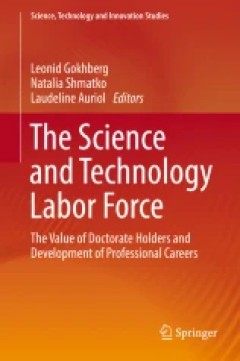
The Science and Technology Labor Force
This book provides an in-depth analysis of the demand for PhDs on the labor markets of twelve countries. The authors analyze the role of PhDs in the creation of innovation in a knowledge-based economy and examine economic issues such as the return on investment for the education and training of doctoral graduates. To provide a more comprehensive picture of the employment patterns, career paths …
- Edition
- 1
- ISBN/ISSN
- 978-3-319-27210-8
- Collation
- -
- Series Title
- -
- Call Number
- -
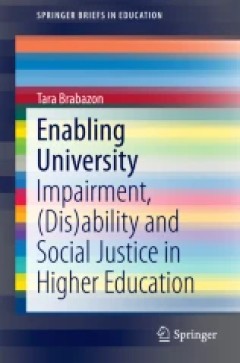
Enabling University Impairment, (Dis)ability and Social Justice in Higher Ed…
This work takes the most recent, interdisciplinary research and demonstrates how to make higher education institutions open, accessible and socially just for staff and students with disabilities. Combining the scholarly fields of media platform management, information literacy, internet studies, mobility studies and disability studies, this book offers a guide and method to consider how student…
- Edition
- 1
- ISBN/ISSN
- 978-3-319-12802-3
- Collation
- 35 b/w illustrations
- Series Title
- -
- Call Number
- -
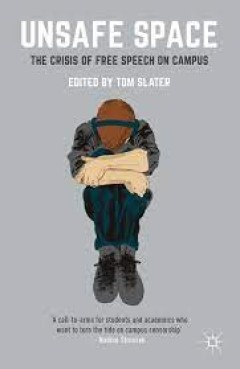
Unsafe Space the Crisis of Free Speech on Campus
The academy is in crisis. Students call for speakers to be banned, books to be slapped with trigger warnings and university to be a Safe Space, free of offensive words or upsetting ideas. But as tempting as it is to write off intolerant students as a generational blip, or a science experiment gone wrong, they’ve been getting their ideas from somewhere. Bringing together leading journalists, a…
- Edition
- 2
- ISBN/ISSN
- 978-1-137-58786-2
- Collation
- VII, 134
- Series Title
- -
- Call Number
- -
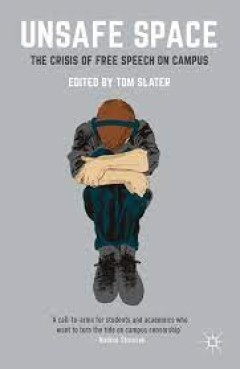
Unsafe Space the Crisis of Free Speech on Campus
The academy is in crisis. Students call for speakers to be banned, books to be slapped with trigger warnings and university to be a Safe Space, free of offensive words or upsetting ideas. But as tempting as it is to write off intolerant students as a generational blip, or a science experiment gone wrong, they’ve been getting their ideas from somewhere. Bringing together leading journalists, a…
- Edition
- 2
- ISBN/ISSN
- 978-1-137-58786-2
- Collation
- -
- Series Title
- -
- Call Number
- -

On disinformation :how to fight for truth and protect democracy
"A manifesto on how to defend truth and reality against Trumpism, post truth, and disinformation campaigns"--OCLC-licensed vendor bibliographic record.
- Edition
- -
- ISBN/ISSN
- 9780262375580
- Collation
- 1 online resource
- Series Title
- -
- Call Number
- -

Selfie democracy :the new digital politics of disruption and insurrection
"Selfie Democracy exposes the unintended consequences of wireless technologies on political leadership and shows how seemingly benign mobile devices that hold out the promise of direct democracy ultimately undermine representative forms of government and deepen partisan divides. As the smart phone and mobile applications are reshaping civic participation, attitudes about freedom, civic rights, …
- Edition
- -
- ISBN/ISSN
- 0262370522
- Collation
- 1 online resource.
- Series Title
- -
- Call Number
- -

Co-illusiondispatches from the end of communication
Reports from America's political crisis, exposing a new "iconopolitics," in which words and images lose their connection to reality. The political crisis that sneaked up on America--the rise of Trump and Trumpism--has revealed the rot at the core of American exceptionalism. Recent changes in the way words and images are produced and received have made the current surreality possible; communicat…
- Edition
- -
- ISBN/ISSN
- 9780262357081
- Collation
- 1 online resource (184 pages).
- Series Title
- -
- Call Number
- -
 Computer Science, Information & General Works
Computer Science, Information & General Works  Philosophy & Psychology
Philosophy & Psychology  Religion
Religion  Social Sciences
Social Sciences  Language
Language  Pure Science
Pure Science  Applied Sciences
Applied Sciences  Art & Recreation
Art & Recreation  Literature
Literature  History & Geography
History & Geography